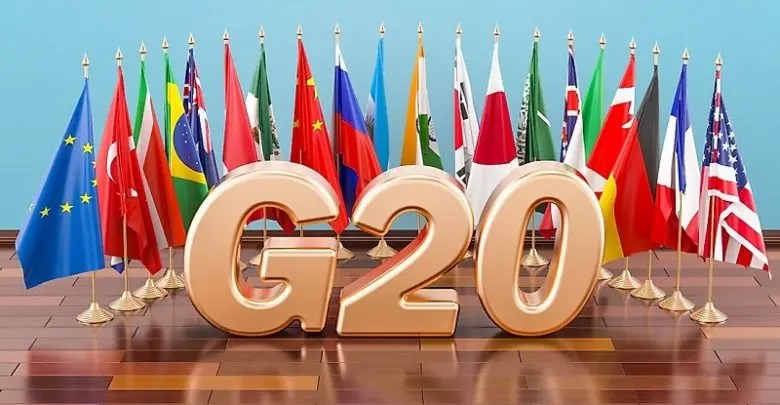 English
English

India will take over after twice swapping the Presidency of the G20, first with Italy in 2021 and then with Indonesia in 2022. Read more on Dynamite News:

New Delhi: India is scheduled to host the G-20 Leaders' Summit at the level of Heads of State in the capital on September 9 and 10, 2023, the Ministry of External Affairs said on Tuesday.
India will assume the Presidency of the intergovernmental forum of the world’s major developed and developing economies for one year from December 1, 2022 to November 30, 2023, the MEA added.
Informing about the summit, the MEA said that under its Presidency, India is expected to host over 200 G20 meetings across the country, beginning December 2022.
Read also: Driving forces of our Dairy Sector are small farmers: Prime Minister Narendra Modi
The members of the G20 are: Argentina, Australia, Brazil, Canada, China, France, Germany, India, Indonesia, Italy, Japan, Republic of Korea, Mexico, Russia, Saudi Arabia, South Africa, Turkey, the United Kingdom, the United States, and the European Union.
In addition to G20 Members, there has been a tradition of the G20 Presidency inviting some Guest countries and International Organizations (IOs) to its G20 meetings and Summit.
Accordingly, in addition to regular International Organizations (UN, IMF, World Bank, WHO, WTO, ILO, FSB and OECD) and Chairs of Regional Organizations (AU, AUDA-NEPAD and ASEAN), India, as G20 Presidency, will be inviting Bangladesh, Egypt, Mauritius, Netherlands, Nigeria, Oman, Singapore, Spain and UAE as Guest countries, as well as ISA (International Solar Alliance), CDRI (Coalition for Disaster Resilient Infrastructure) and ADB (Asian Development Bank) as Guest IOs, the MEA said.
Informing about the priorities, the MEA said that while the G20 priorities are in the process of being firmed up, ongoing conversations inter alia revolve around inclusive, equitable and sustainable growth; LiFE (Lifestyle For Environment); women’s empowerment; digital public infrastructure and tech-enabled development in areas ranging from health, agriculture and education to commerce, skill-mapping, culture and tourism; climate financing; circular economy; global food security; energy security; green hydrogen; disaster risk reduction and resilience; developmental cooperation; fight against economic crime; and multilateral reforms. (with UNI inluts)